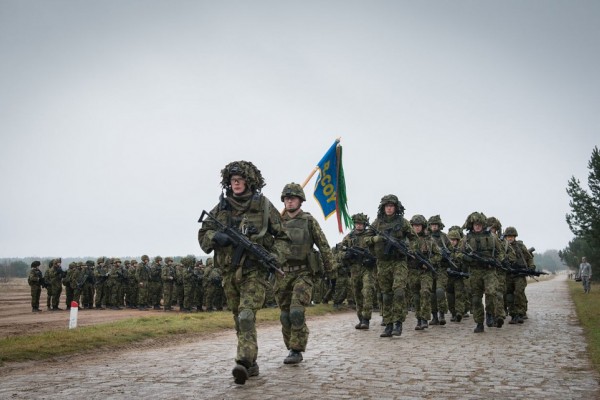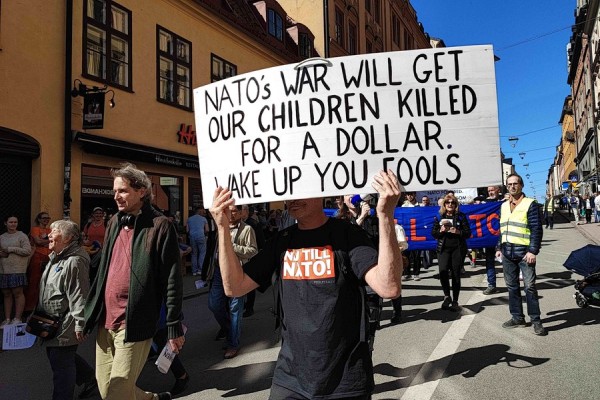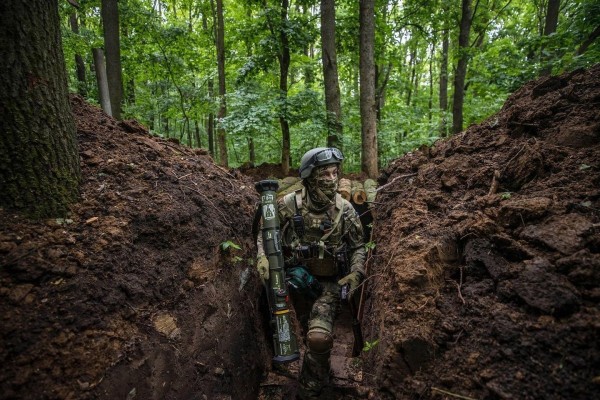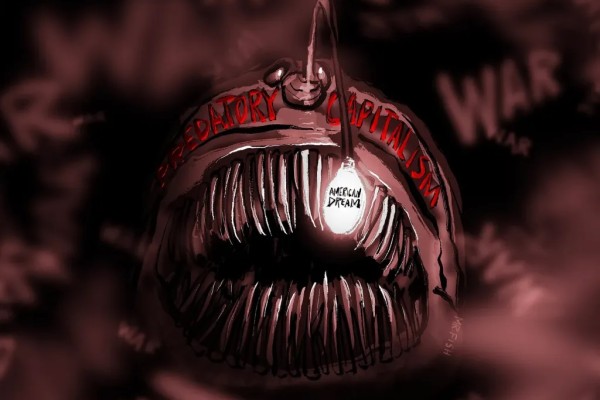Winnipeg plant one of largest F-35 parts producers in Canada
Magellan Aerospace builds the horizontal tail assemblies for the controversial aircraft

A graphic showing Canadian contributions to the production of F-35 jets. Image courtesy Lockheed Martin.
Of the more than 100 companies in Canada that produce components for the F-35 combat aircraft, Mississauga-based Magellan Aerospace is one of the largest. Notably, it is also majority owned and chaired by billionaire N. Murray Edwards, the 35th richest person in Canada, who controls oil sands giant Canadian Natural Resources Limited, or CNRL, and the mining company Imperial Metals, responsible for the catastrophic Mount Polley tailings disaster.
However, most of Magellan’s fighter jet manufacturing does not take place in Ontario, where much of the Canadian F-35 supply chain is concentrated, or even in provinces like Alberta or British Columbia, where Edwards’ many other interests are located. Instead, Magellan’s main F-35 production happens in a large factory in the St. James neighbourhood of Winnipeg, right next to the city’s airport.
In 2013, the general manager of Magellan’s Winnipeg operations said the plant was “doing the largest volume of work on the F-35 in Canada.” This claim was reiterated in 2016 when the Winnipeg Free Press reported that that “Magellan’s St. James plant is one of the largest participants in the F-35 program in Canada.” Shortly after, the Winnipeg plant was again described as the “largest Canadian structural supplier to the controversial jet.”
Specifically, Magellan’s Winnipeg factory manufactures the horizontal tail assembly for the F-35A: the main variant of F-35 that Canada recently committed to buying 88 of, and that serves as the basis of Israel’s special subvariant, the F-35I. The company won an initial contract to build the essential parts in 2009, with the first completed tail assembly installed onto an F-35 at Lockheed Martin’s Fort Worth factory in 2013.
Magellan had this contract renewed several times since, most recently in late 2022, right before Canada announced its plan to finally pull the trigger on buying the fighters. Over the lifespan of the Joint Strike Fighter (JSF) program, Magellan’s Winnipeg plant is expected to ship more than 1,000 horizontal tail assemblies, accounting for half of all tail assemblies for the F-35A. In 2019, Magellan reported that the plant was ramping up deliveries to 60 per year. In total, it is anticipated that these contracts will be worth about $1.5 billion in revenues.
Magellan celebrates the manufacture of its 400th tail assembly for the F-35A fighter aircraft. Photo courtest Magellan Aerospace Limited/LinkedIn.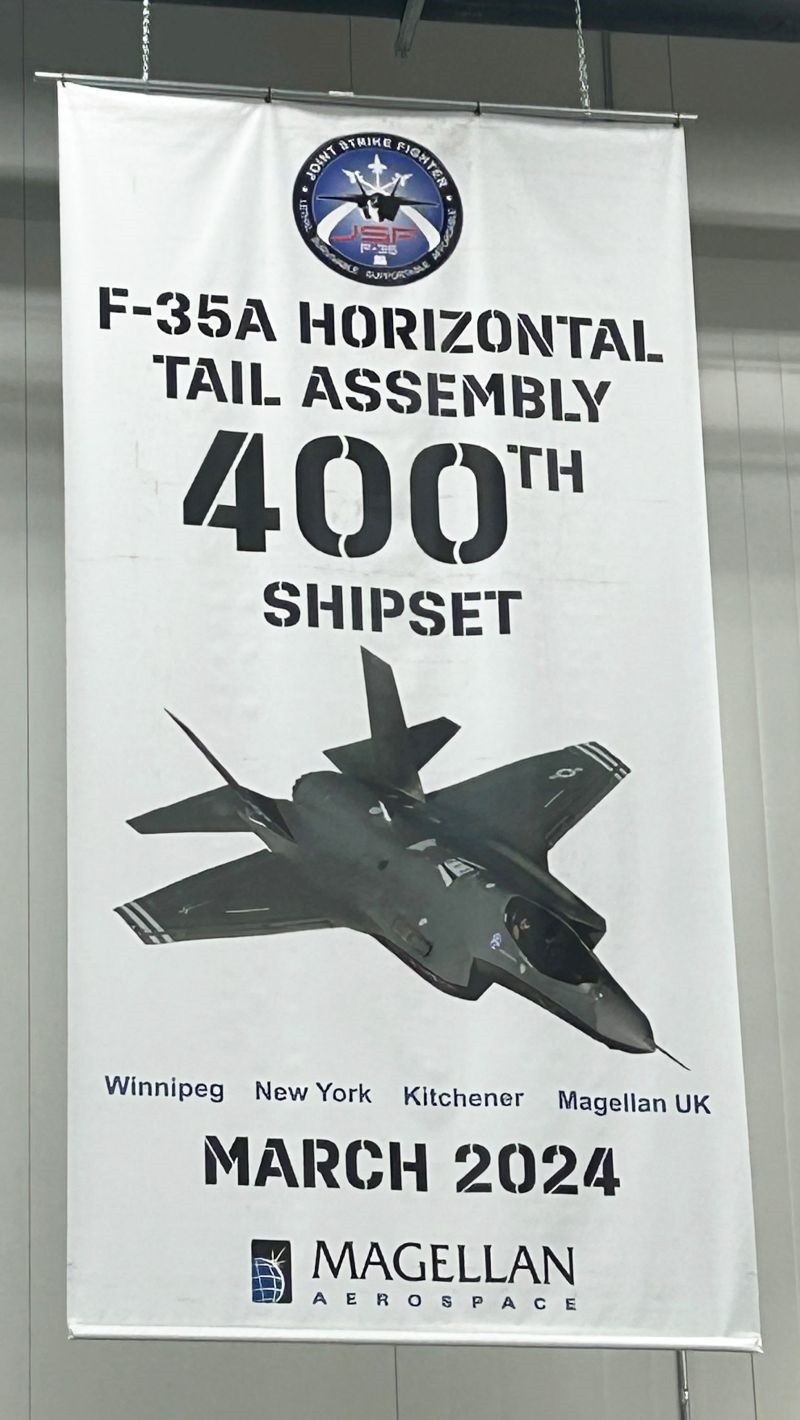
Magellan’s F-35 production operations in Winnipeg have received massive support from all levels of government. In 2008, the federal government provided a $43 million interest-free loan for Magellan to expand its Winnipeg plant for F-35 parts manufacturing, which was followed by a $20 million loan from the province. In 2010, the City of Winnipeg sold a large parcel of surplus land valued at $638,000 to Magellan for $1, allowing for the construction of the 138,000 square foot Advanced Composite Manufacturing Centre, which was opened in late 2011. Then, in 2018, the federal government gave $5 million to Magellan for its Winnipeg plant.
Magellan has also received various indirect supports through state funding of research and technology development. The federal and provincial government has contributed millions of dollars to the Composites Innovation Centre, a non-profit set up to advance product development in composites that Magellan often collaborates with. In 2011, the federal government allocated $4.4 million to Red River College to establish the Centre for Non-Destructive Inspection Technologies (CNDI) at the Magellan campus, which the company heralded as “integral in meeting the demanding production schedule and quality requirements for the manufacture of the composite components that comprise the next-generation F-35 aircraft.”
Conservative politicians in particular have supported Magellan’s Winnipeg operations. The huge $43 million loan to the company was announced by the Conservative government only days before the election call in 2008, with MP Vic Toews stating “Prime Minister Harper and the government are working hard to maximize business opportunities available to Canadian companies under the JSF program.” Harper also visited the plant in 2010 for the formal groundbreaking of the Advanced Composite Manufacturing Centre, where the prime minister reportedly “lavished praise on the skills of the [Magellan subsidiary] Bristol Aerospace workforce for its success in building state-of-the-art parts for the new fighter jet.”
It was later reported that during this period, Conservative minister Rona Ambrose had vacationed on a yacht owned by Edwards, the billionaire owner of Magellan. The Globe and Mail reported that “archived public records show Magellan, or one of its divisions, won federal contracts or benefited from funding worth almost $100-million between 2008 and 2015, when Ms. Ambrose held a series of cabinet roles, including public works.” In 2016, Manitoba Premier Brian Pallister conducted a press conference alongside several major aerospace executives—including from Magellan—to call for greater federal support for the industry and more consideration of purchasing the F-35, “the construction of which has received considerable local investment.”
Notably, Magellan’s Winnipeg-based F-35 program director served as chair of the Canadian JSF Industrial Group, which played a major role in lobbying for Canada to buy F-35s over other fighter jets. Magellan has also claimed that the jobs of the 150 workers who manufacture F-35 parts at the Winnipeg plant were in jeopardy if Canada did not proceed with the acquisition, a threat that was curiously rebuffed by a Pentagon official who said it would not make a difference given existing contracts.
In total, F-35 parts production makes up about one-quarter of jobs at the Winnipeg plant—150 of about 600 jobs—with defence contracting accounting for one-third of Magellan’s total revenue. Magellan also appears a miserly employer, with a multi-month strike taking place in 2011, the sixth and longest in the 35 years prior, over the company’s attempt to cut retirement benefits and remove cost-of-living increases.
Magellan’s Winnipeg plant is located at 660 Berry Street. The Advanced Composites Manufacturing Centre, where F-35 parts are manufactured, is located just behind the main building, at 1855 Ellice Avenue.
Saturday, November 16 is the national day of action against F-35 production.
James Wilt is a Winnipeg-based PhD candidate and freelance writer. His latest book is Dogged and Destructive: Essays on the Winnipeg Police.





